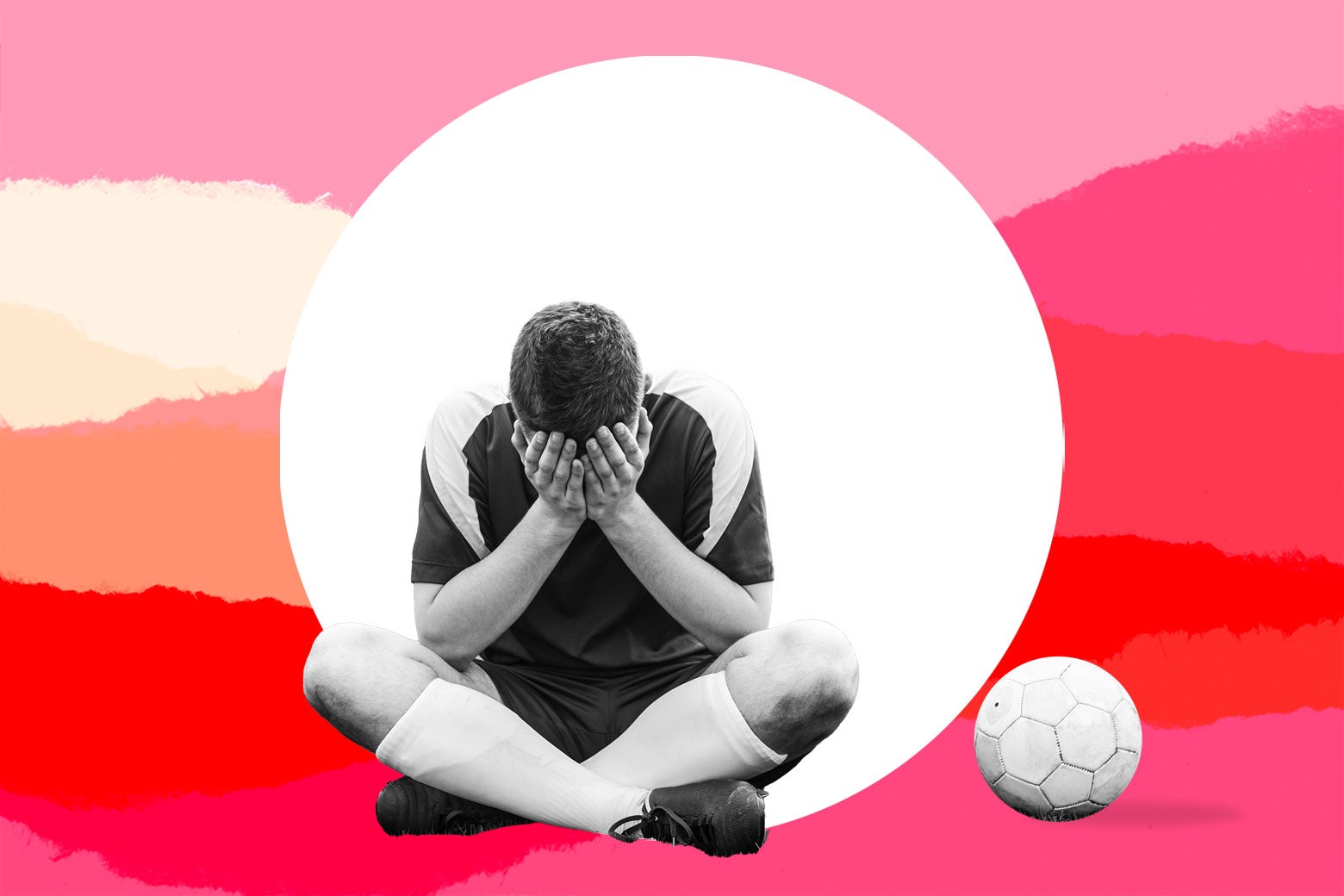Travel
My Kid Loves Playing Travel Sports. I Have a Big Worry About His Coach.

Care and Feeding is Slate’s parenting advice column. Have a question for Care and Feeding? Submit it here.
Dear Care and Feeding,
My 11-year-old son plays a travel sport that he loves. He’s a fairly talented player for his age, but by no means the best one on his team, which plays at a high level. His coach is probably one of the best coaches locally and the kids really respond and improve with him. However, he is hard. As in, he is a yeller. Any time a kid makes a mistake, they get chewed out loudly. In our last game my son made a mistake and was pulled out while being yelled at and he was in tears for almost the rest of the game (which led to the coach yelling at him further). It was hard to watch.
This is where I am conflicted. I know that to play at a high level you have to put on a thick skin and learn to play through adversity and being uncomfortable. I talked to my son since then, and he seems genuinely over the whole ordeal and ready to keep playing. I’ve talked to him about how I didn’t like what I saw, and that I don’t want him to ever model the coach’s behavior. He appears to understand this and chalks it up to just how this coach is, but insists he wants to remain with his team and the coach, who he does respect and has learned a lot from.
The coach is a nice guy and cares about the kids. Just intense and passionate. He’s been talked to by other parents, and from what I understand, he used to be worse. My son may be ready to keep playing, but at what point should I, the parent, intervene and make the choice for him to find a new team?
–Possible Helicopter Parent
Dear Possible,
The point is now. You should intervene now and find your son a new team now. There is absolutely no reason for a child to be placed in an environment in which they are shouted at in front of everyone, chewed out for a mistake, and berated for crying about it. This is unacceptable, and you owe it to your son to get him out of this situation immediately. I don’t care if he says he is ready to continue—he is a child, and is susceptible to a lot of social and internal pressure to go with the flow, but you are a parent and you are not, so you are in a position to do the right thing. To do so is not to be a “helicopter parent.” To do so is to rescue your son from a lousy situation with a coach who is not, I am afraid, a nice guy, but is an asshole.
This drives me up a wall. Your son is an average player on a pretty good travel team. He is not Ken Griffey, Junior, Junior! And even if your son was the hottest prospect in your state—even if you had dreams of him landing a college scholarship or making a living playing this sport—the era of the mean, angry coach who secretly has a heart of gold has passed. That bullshit belongs in movies from thirty years ago, and has no place in the real-life sporting environment of even the most talented youth player. On top of everything, yelling at kids does not actually make them better at a sport! For the most part it just makes them self-conscious and fearful, and is guaranteed to make almost any kid eventually hate the sport and wish he’d never started playing.
Find your son another team. Tell this coach, and every other parent on the team, exactly why you are doing so. If you take crap from other parents for it, ask them why on earth they are willing to subject their children to abuse for a game.
Want Advice on Parenting, Kids, or Family Life?
Submit your questions to Care and Feeding here. It’s anonymous! (Questions may be edited for publication.)
Dear Care and Feeding,
How do you maintain your chill watching your kids play sports, especially when the game is not going well)? My 9-year-old plays rec-level sports (meaning they’re not supposed to be super competitive). Some of the refs don’t have great control of the games, and especially in a sport like soccer where some physical contact is part of the game, it’s actually dangerous? I literally watched another child clothesline a kid in a soccer game today, and it wasn’t called as a foul. The physicality then kept escalating! It’s actively hard to watch the play be dangerous because the ref isn’t stopping play that’s inappropriate for the sport.
I’m not the parent who’s going to yell at the referee. I’m worried I’m the parent who is going to have a cardiac event on the sidelines trying to keep it together. (I’m exaggerating, and today’s game was worse than usual, but eek, this is hard!) Is there a mantra you recommend? Are you doing breathing exercises on the sideline?
–Athletic Anxiety
Dear Athletic,
If I read your letter correctly, what bothers you during these games is not what often bothered me—my worries about my own child’s success or failure on the field, and how she might respond to a strikeout or a poor serve. You feel that the games themselves are out of control, with referees (often kids themselves) not able to correctly identify a foul and putting the players at risk.
It is true that the 14-year-olds who referee 9-year-old soccer matches are not entirely capable of controlling the flow of a game the way a more experienced referee can. Small infractions, left unchecked, can grow over the course of a match into larger outrages; to some extent it’s the responsibility of adult coaches to make sure to police their own players and sub out kids who are letting their emotions or their bodies get away from them.
If your concerns are purely relating to player safety, I would remind you that 9-year-olds are very resilient and also not very big. The amount of damage they can do to one another is somewhat restricted by how short a distance it is between them and the ground. The majority of soccer injuries happen to players’ legs during hard, poorly-judged tackles; in a 9-year-old rec league, I don’t expect you should see many of those. You can reach out to the league administrators if you’re seeing truly dangerous play. (Honestly, among 9-year-olds, the occasional clothesline barely counts.)
If, as I found to be the case for me, your concern about poor refereeing turns into indignation at all the fouls the other team commits upon your team that are, unfairly, not called—and doesn’t that ref see THAT SHOULD BE A YELLOW CARD?!—I do have a mantra you might find helpful. These are children playing a game, you can tell myself. It does not matter, even a tiny bit.
Another option is simply not to go to the games! It’s not a law that you have to go to your child’s games. Plenty of kids, tired of seeing their hyperventilating parents struggling to keep it together on the sidelines, would be happier if their mom and dad attended far fewer of their sporting events. Imagine how relaxed you would be if, instead of going to every single game, you had a glass of wine and read a book. Something to consider!
Dear Care and Feeding,
Before the start of the school year, we moved to a new school district. My 8-year-old was actively bullied at her old school by other kids, and her teacher turned a blind eye to it. She stood out at her old school—she was the only kid who wore glasses, and the only South Asian kid at school (most of the school was white). This new school is more racially diverse and there are more kids who wear glasses. There is also just a greater diversity of kids in general: My daughter has a classmate with cerebral palsy and a classmate with two moms. It’s a much more supportive environment. My daughter hasn’t been bullied here—in fact in the first month of school she’s made two very close friends, which never happened at her old school.
And yet she finds it much more difficult to get to school each day. From when she wakes up to when we get to the bus stop is always a struggle. Getting dressed (even if she picks out the outfit the night before), brushing teeth, packing her bag, etc., is all an argument. We sometimes have to convince her to wear her glasses (she can’t see a thing without them). If we ask her in the afternoon or evening she might say it’s because she’s scared of going to school in the morning, because she remembers what it was like at her old school. But she wasn’t like this at her old school! How can we make mornings easier now that school isn’t so difficult?
–Waking Up Is Hard to Do
Dear Waking Up,
I’m sorry you all are going through this! We, too, went through a period in which just getting our kids up and out the door was pure torture every single morning. Your child really went through a tough time at her old school, and it’s not surprising to me that although she’s in a much better environment, the difficulties of the past year(s) are finally catching up with her. Children don’t always respond to adversity on the schedule we think they will—parents look for straight lines, but it doesn’t always work that way. My guess is that this is a very temporary problem, and by December or so she will have overcome this particular issue and will be a more cheerful, accommodating version of her morning self.
Not that that is much of a comfort right now, while you’re spending twenty minutes debating which brand of breakfast cereal she will eat! So what can you do to make mornings better, sooner?
Is your daughter a planner—a kid who wants to know what is going to happen before it happens? A morning checklist might be helpful to her, an actual chart on posterboard on which she gets to place stickers next to each task she accomplishes. Is your child trying to fit a lot into a little bit of time? You could consider setting your alarm 20 minutes earlier, to give everyone a little more breathing room. Is your child a bad sleeper? If she’s waking up tired and groggy in the morning, you might want to rethink her bedtime and bedtime routine, including making sure she’s not using devices or looking at screens too late in the evening. Is your child motivated by bribery? I would not dismiss bribery as a great way to get an 8-year-old to do something she doesn’t want to do. (What if, for a limited time, that cereal was … Fruity Pebbles?)
Is there some specific event in the morning she’s apprehensive about, even if her new school is, on the whole, better than her old one? Perhaps there’s a kid on the bus who makes her worried, or an early-in-the-day classroom ritual she doesn’t feel part of just yet. You might ask her specifically to tell her about what her mornings are like, in order to identify, and then help her through, a pain point that might be leading to her a.m. pokiness.
Good luck!
—Dan









